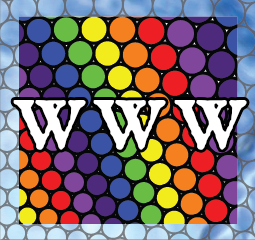Introduction
The dialectic has its quirks that appear anything but logical, yet to the crowd affirm that the results of the process appear correct and logical. The fast speaker can pull many tricks that violate logic yet give the appearance of it. The practice of the method is not without several "equivocations" to logical operation: They are far from methods of proof: rather they are methods of argument and deceit.
The Success Of The Dialectic
The dialectic method takes it's place in the use of logic amongst philosophical discussion: It actually takes the place of an excluded middle. The total disagreement of two conflicting facts finds their excluded middle in the process, that "agreeing to disagree" is the conjunction of the two polar opposites. The method of the dialectic used for discussion is this same excluded middle - a conjunction. For the conversation itself becomes the "synthesis" or conjunction of the two alternative views as if they were equally valid - neither one is shown by the presence of debate to be the absolute truth.
Logical AND
A rather lengthy page that attempts to justify that the synthesis of a thesis/antithesis pair using the dialectic is an equivalent form to the logical AND or 'conjunction' of two opposing arguments. What is not shown is true equivalence to logic, but rather that the method of the dialectic may be used as a mechanism by which the appearance of a logical AND statement may occur. It can take the place of the underlying mechanism with which the mind can arrive at an AND statement by using the method. True logical law is not supplied by the method, only a mechanism that may supply the thought of such a rule.
Logical NOT
The dialectic has its own negation within its method, that if a synthesis is patently false the method may continue in a direction that opposes its original application. Conjunction (oil) becomes disjunction (wine) and vice versa. Though not logical, there is in the method itself the ability to change the direction of consensus in a form that is analogous to logical contradiction.
Logical OR
It may be noted that if there is always a synthesis, what is the use of an "or statement" if there is always an excluded middle? Well, the process itself in finding synthesis will permit the endless disputation of opinion in any argument where the fixed views of those participating are such that there is no "facilitation" or action of "wine". Drinking from a different cup has the result that there is actually, no synthesis other than the process itself.
Logical XOR
The dialectic has no plausible XOR operation (besides in the use of the dialectic's 'NOT' operation as previously.) - In opposition to the static triple and unity that shifts to construct the dialectic is the fixed (static) subgroup that we have discounted thus far. To be free to choose between inverse decisions outside of the dialectic process it must be the case that the fixed view is not up to discussion and everything that remains is freedom of choice, and there is no "right or wrong" as regards to argument against absolute truth for those that choose the K4 form in Christ - Only the fixed position is truthfully valid!
Naive Set Theory
The dialectic is looked at in terms that could be imagined as "sets" on a sphere. There is a "naive" common language of sets that most people have encountered at school, however the dialectic has a simple premise that the negation of a conjunction of opposites is the disjunction. I can only (naively) imagine this as upon the surface of a sphere,.. If you have an alternate or more detailed idea, please let me know! The result that the conjunction or disjunction is either empty or a point on the sphere, leads to the question, "Can the sphere only be infinite?"
Do Numbers Lie?
The dialectic does not find it's symmetry in the basic understanding of numbers - (oooh, so close!) Numbers at first glance appear to have a principle of multiplication which to the young pupil studying the prime factorisation theorem would appeal to be a candidate for a "rationally arrived at" dialectic: However this is not the case.
Greeks, Time And Commensurability
The Greeks had many arguments that show that there is no such thing as a "smallest length" or a "shortest moment". It was argued that if there were such values, motion would be impossible. Just as obvious to us all should be the idea that there is no "least truth" from which all truth is derived, or a "greatest principle" from which every choice could be justified. Logic itself is not commensurable, no matter how the dialectic may rely upon it. It (the dialectic) is intrinsically deceptive.
The Dialectic Method In Research
A short observation on the modern state of research, the reason besides health that I never returned to college.
Continue To Next Section
Continue To Next Page
Return To Previous Section |





